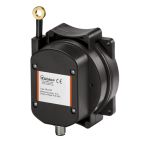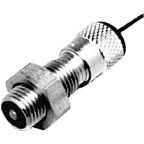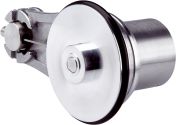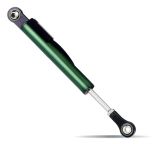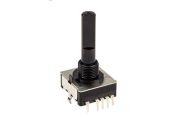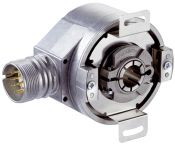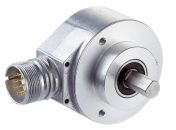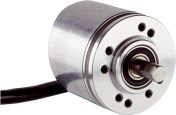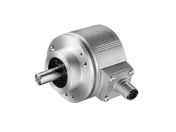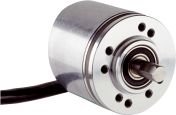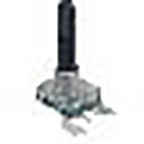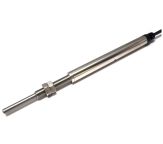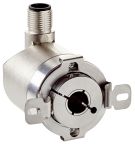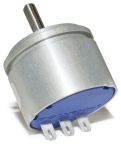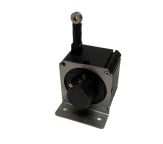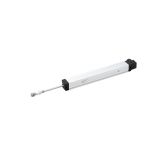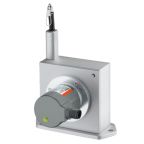Motion Control Sensors
Motion Control Sensors, also known as Position Sensors or Rotary Encoders, detect movement from a nearby object and return an electrical signal to the detector which converts it into a readable signal for digital devices. Motion Control Sensors give a very accurate measure of the detected object's angular mechanical position, enabling the user to determine rotational mechanical displacements. They also allow the user to regulate and control outputs such as speed, position, frequency, and volume control.
Types of Motion Control Sensors
Rotary encoders
- also known as shaft encoders are electromechanical sensors that monitor the position of the shaft or axle, and then send it back digitally. Rotary encoders are commonly used in many automation applications that require precise shaft unlimited rotation
Linear transducers
- are used to measure movement in a straight line. They convert displacement into an electrical signal, that's proportional to the amount of displacement. These sensors are commonly used in very harsh, cold climates , and applications where accuracy is critical.
Magnetic pickups
- are sensors which detect the speed of a moving part. This motion is picked up by the magnetic field, which induces a measurable AC voltage. These sensors are often used as components of speedometers or tachometers, which are integral parts of engines and industrial equipment.
A linear variable differential transformer (LVDT)
- is used to accurately measure linear displacement. There are many types of these motion controllers and they have different armatures, temperature range, built in electronics and stroke lengths and have been specifically designed to measure multiple targets. It can be used in a range of applications within industry or research as it can easily be modified to fulfil different sensing tasks.
Incremental Encoder
- Incremental Encoders produce a specific number of pulses per revolution and measure the amount of linear or angular distance moved. Each time the encoder is powered on it starts from zero, irrespective of where the shaft is, so it measures the shaft to a specific reference point.
Absolute Encoder
- Absolute Encoders provides an absolute numerical value for every angular position for every revolution which makes them handy for exact measurement of mechanical angular displacement. Even when the system is without power, they can give precise position values when the encoder is powered back up.
Applications of Motion Control Sensors
Motion Control Sensors and the subsequent types of Sensor are incredibly useful in industrial settings in which the rotation of shafts or motion of moving parts need to be accurately set and measured to ensure the smooth operation of factory processes.
- Aerospace industry
- Measurement & Testing
- Robotics
- Automation & Control
- Assembly Lines
Rotary Encoders/Motion Control Sensors are popular due to their high durability, incredible accuracy, and long life. Browse the broad range of Position Sensors RS Components have to offer and order today for next day delivery.
